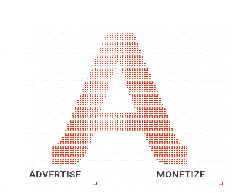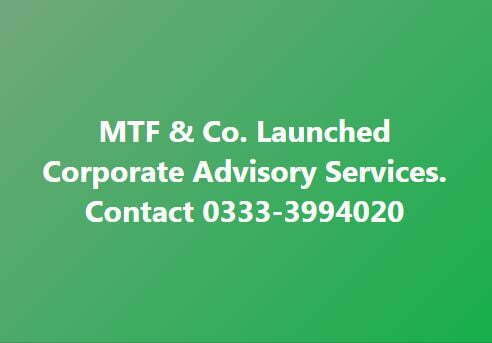Day 5: Income Tax Basics in Canada
Introduction:
Income tax is one of the most significant forms of taxation in Canada, affecting both individuals and businesses. Today, we will explore the basics of income tax, including how it is calculated, the different tax brackets, filing requirements, and important deadlines.
Understanding Income Tax
What is Income Tax?
Income tax is a tax levied on the income of individuals and businesses. In Canada, income tax is administered by both the federal government and provincial/territorial governments. The revenue generated from income tax is used to fund essential public services, such as healthcare, education, infrastructure, and social programs.
Calculating Personal Income Tax
Taxable Income:
Taxable income is the portion of your total income that is subject to income tax. It is calculated by subtracting allowable deductions and credits from your total income. Common sources of income include wages, salaries, self-employment income, investment income, and pensions.
Tax Brackets and Rates:
Canada uses a progressive tax system, meaning that higher income levels are taxed at higher rates. Both the federal and provincial/territorial governments have their tax brackets and rates. Here’s an overview of the federal tax brackets for the 2023 tax year:
- 15% on the first $53,359 of taxable income.
- 20.5% on the next $53,359 of taxable income (from $53,359 to $106,717).
- 26% on the next $53,359 of taxable income (from $106,717 to $165,430).
- 29% on the next $63,304 of taxable income (from $165,430 to $228,734).
- 33% on taxable income over $228,734.
Provincial and territorial tax rates vary, with each region setting its brackets and rates.
Credits and Deductions:
Tax credits and deductions can significantly reduce your tax liability. Deductions reduce your taxable income, while credits reduce the amount of tax you owe. Common credits and deductions include:
- Basic Personal Amount: A nonrefundable tax credit that reduces the amount of federal income tax you owe.
- Canada Employment Amount: A tax credit for individuals with employment income.
- RRSP Contributions: Deductions for contributions to a Registered Retirement Savings Plan (RRSP).
- Childcare Expenses: Deductions for eligible childcare expenses incurred to earn income.
- Medical Expenses: Deductions for eligible medical expenses exceeding a certain threshold.
Filing Requirements and Deadlines
Filing Your Tax Return:
Most individuals in Canada are required to file an annual income tax return with the CRA. The tax return reports your income, calculates your tax liability, and determines whether you owe additional taxes or are entitled to a refund. The most common way to file a tax return is online using certified tax software, but you can also file by mail.
Important Deadlines:
The deadline for filing your income tax return is April 30th of each year. If you or your spouse/common-law partner are self-employed, the deadline to file your return is June 15th, but any taxes owing must still be paid by April 30th.
Penalties for Late Filing:
If you file your tax return late and owe taxes, the CRA will charge a late-filing penalty. The penalty is 5% of the amount owing, plus 1% for each full month your return is late, up to a maximum of 12 months. If you have previously filed late returns, the penalties can be higher.
Continuing with our topic of “Income Tax Basics in Canada”
Understanding Business Income Tax
Corporate Income Tax:
Corporations in Canada are required to file an annual corporate income tax return. Corporate tax rates vary by income level and business type. Small businesses may qualify for a lower tax rate on the first $500,000 of active business income.
SelfEmployment Income:
Self-employed individuals must report their business income and expenses on their personal tax return. Self-employment income is subject to both federal and provincial/territorial income tax, as well as contributions to the Canada Pension Plan (CPP).
Deductions for Businesses:
Businesses can claim a variety of deductions to reduce their taxable income, including:
- Business Expenses: Deductions for expenses incurred to earn business income, such as advertising, office supplies, and salaries.
- Capital Cost Allowance (CCA): Deductions for the depreciation of capital assets, such as buildings and equipment.
- Home Office Expenses: Deductions for a portion of home expenses if you use part of your home for business purposes.
Key Takeaways
1. Progressive Tax System:
- Canada uses a progressive tax system with higher income levels taxed at higher rates.
- Both the federal and provincial/territorial governments have their tax brackets and rates.
2. Importance of Credits and Deductions:
- Tax credits and deductions can significantly reduce your tax liability.
- Common credits and deductions include the basic personal amount, RRSP contributions, childcare expenses, and medical expenses.
3. Filing Requirements and Deadlines:
- Most individuals are required to file an annual income tax return by April 30th.
- Self-employed individuals have until June 15th to file, but any taxes owing must be paid by April 30th.
4. Business Income Tax:
- Corporations and self-employed individuals must report their business income and expenses.
- Businesses can claim a variety of deductions to reduce their taxable income.
Concluding our topic of “Income Tax Basics in Canada”
Conclusion
Understanding the basics of income tax is essential for effective financial planning and compliance with tax laws. By familiarizing yourself with the tax brackets, credits, deductions, and filing requirements, you can ensure that you meet your tax obligations and take advantage of available benefits.
Stay tuned for Day 6, where we will explore employment income and benefits, including what is considered taxable and the deductions available for employment-related expenses.
Bookkeeping Services 
Accurate bookkeeping is crucial for effective tax management. Our comprehensive bookkeeping services ensure your financial records are meticulously maintained, making tax filing and compliance hassle-free. You can focus on growing your business with expert assistance while we handle the numbers.
Our services include:
- Transaction Recording: Precise recording of all financial transactions.
- Financial Reporting: Regular reports to keep you informed of your financial health.
- Tax Preparation: Organized records for smooth tax filing.
- Compliance: Ensuring adherence to tax laws and regulations.
Contact us at mtfco@onewebonehub.com to learn more about how our bookkeeping services can support your financial needs.












